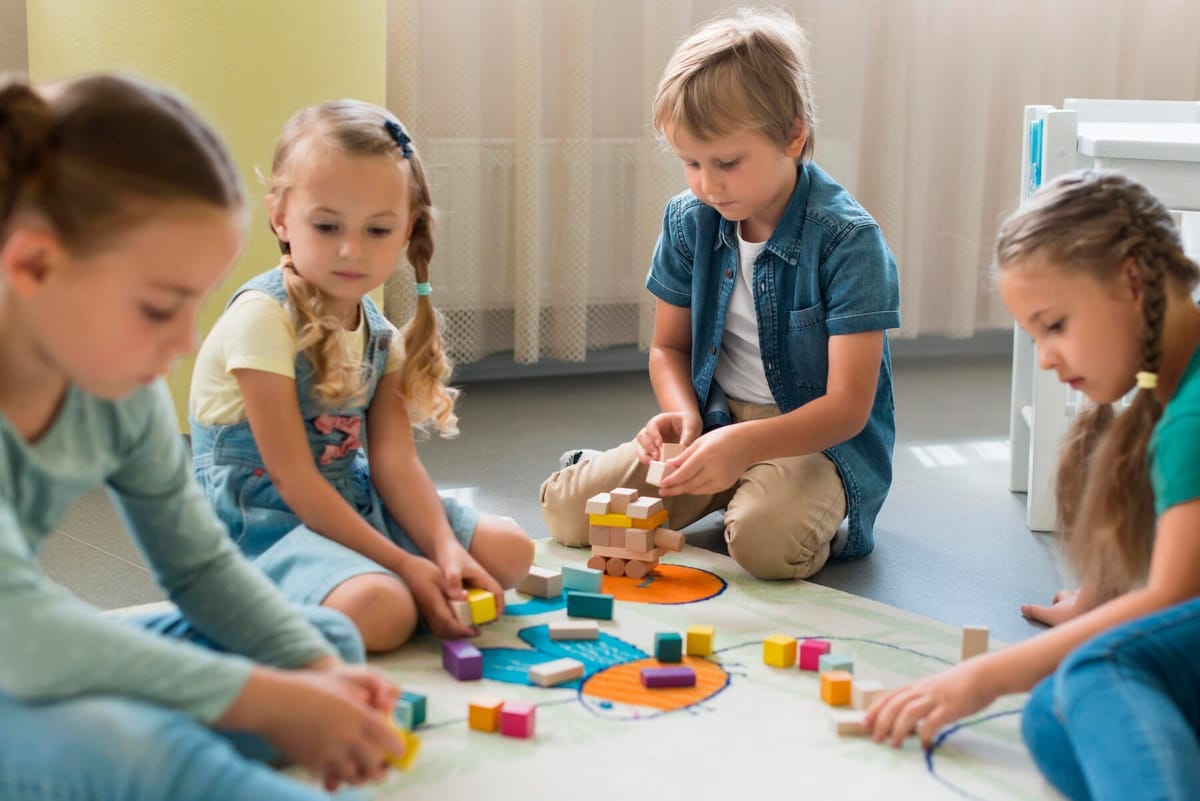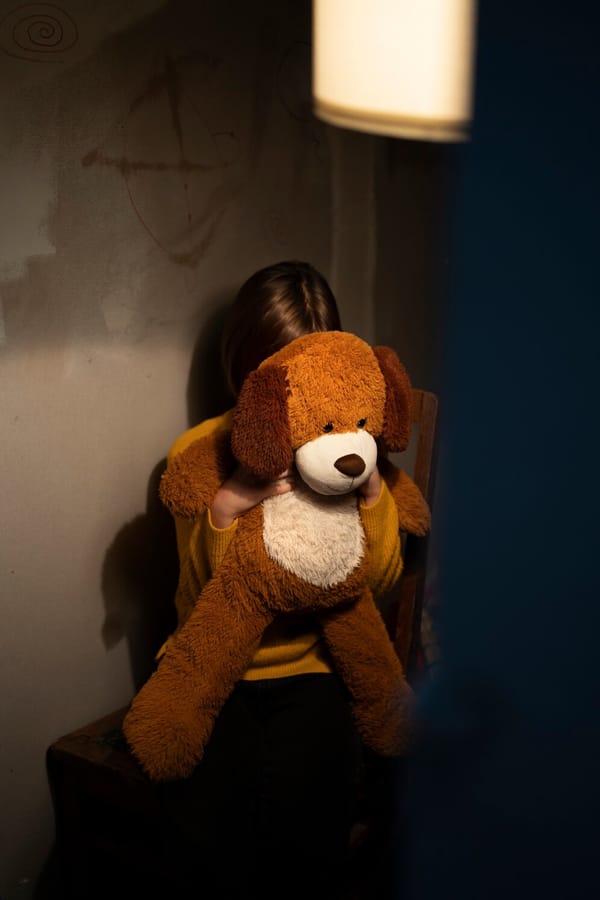How Daycare Helps Your Child Develop Social Skills

As parents, one of the greatest desires we have for our children is that they grow up to be confident, empathetic, and well-adjusted individuals. While the home environment plays a crucial role in shaping these traits, daycare can also be an excellent setting for fostering the social skills that are so important for your child’s development. But how exactly does daycare contribute to a child’s social growth? Let’s explore the various ways daycare can support the development of social skills in young children.
1. Encourages Peer Interaction
One of the biggest advantages of daycare is that it provides children with regular opportunities to interact with their peers. Unlike home settings, where children may be surrounded by adults or older family members, daycare exposes them to other kids of similar age. These interactions allow children to:
- Learn to Share: At daycare, kids have to share toys, space, and attention with others. This is a vital part of socialization. While it can be a challenge, learning to share helps children develop empathy and a sense of fairness.
- Practice Taking Turns: Whether it’s playing a game or waiting for their turn to use a toy, daycare teaches kids the importance of patience and cooperation.
- Navigate Conflicts: Disagreements and conflicts are bound to happen when kids spend time together. Daycare provides the perfect environment for children to learn how to handle these situations, whether it's by compromising, using their words, or asking for help from a caregiver.
2. Develops Communication Skills
Daycare is a place where children are constantly engaging in verbal exchanges, whether with their peers or with daycare staff. These regular interactions promote the development of essential communication skills, such as:
- Expanding Vocabulary: At daycare, children are exposed to a wider range of vocabulary through conversations, stories, and songs. This helps them expand their vocabulary and improve their ability to express themselves clearly.
- Learning Social Cues: Through play and group activities, children pick up on non-verbal cues like body language, tone of voice, and facial expressions. They learn how to read and respond to these cues, which is essential for understanding emotions and building relationships.
- Developing Active Listening: In daycare settings, children practice taking turns in conversation, listening to others, and responding appropriately. This skill is fundamental for building strong relationships and maintaining respectful communication.
3. Teaches Empathy and Cooperation
Empathy is a crucial social skill, and daycare provides many opportunities for children to learn how to understand and care for the feelings of others. For example:
- Comforting a Friend: When a child sees a peer upset, daycare staff often encourage them to offer comfort, whether through a hug, a kind word, or simply sitting beside them. These interactions help children understand how to recognize and respond to emotions in others.
- Collaborative Play: Activities that require teamwork, like building a tower together or completing a puzzle, help children learn how to cooperate with others to achieve a shared goal. They learn that collaboration often involves compromise and mutual respect.
- Celebrating Differences: Daycare environments are often diverse, providing children with the opportunity to interact with others from different backgrounds and cultures. This fosters acceptance and understanding, helping them appreciate diversity and develop inclusive attitudes.
4. Instills a Sense of Routine and Structure
Social skills aren't just about interacting with others—they also involve understanding how to navigate the world around us. Daycare provides children with the consistency of a structured environment, where they:
- Learn Social Norms: Daycare teaches children important social norms, such as greetings (saying “hello” or “goodbye”), making eye contact, and showing respect for personal space.
- Understand Boundaries: From knowing when it’s time to play, eat, or nap, daycare helps children learn the importance of routines and respecting boundaries, both their own and those of others.
- Develop Confidence: When children feel safe in a structured environment, they are more likely to explore, engage with others, and confidently express themselves, all of which contribute to stronger social skills.
5. Provides a Safe Space for Emotional Expression
Learning to manage emotions is a crucial part of social development, and daycare can be an ideal place for children to practice emotional regulation in a supportive setting. Caregivers at daycare are trained to:
- Model Calmness: When children experience frustration or anger, daycare staff can model calm and appropriate ways to deal with those emotions, such as taking deep breaths, using words to express feelings, or asking for help.
- Create a Safe Emotional Space: A quality daycare environment fosters emotional security, where children feel safe to express themselves and ask for help when needed. This support system teaches them that it’s okay to experience emotions and seek help when they need it.
- Encourage Positive Reinforcement: Positive reinforcement helps children understand appropriate behaviors and encourages them to repeat them. Daycare providers can celebrate kind actions like sharing or saying something nice to a friend, reinforcing the importance of social positivity.
6. Promotes Group Activities and Teamwork
Daycare is a hub for group activities that require children to work together to accomplish a task. Whether it’s circle time, collaborative art projects, or group games, these activities are designed to:
- Enhance Teamwork: Working in a group setting teaches children the value of teamwork. They learn that their actions can affect others and that mutual support is necessary for success.
- Boost Problem-Solving Skills: In group activities, children often need to work together to solve problems, whether it’s figuring out how to fit a puzzle piece or deciding on the rules for a game. This collaborative problem-solving process enhances their social and cognitive skills.
- Foster a Sense of Belonging: Participating in group activities creates a sense of community. Children begin to understand that they are part of a larger group, which fosters a sense of belonging and connection.
7. Encourages Respect for Authority and Rules
In daycare, children interact not only with peers but also with adults, such as caregivers and teachers. This dynamic teaches them important social skills, including:
- Respect for Authority: Children learn to listen to and follow instructions from adults, which is essential for building respect and understanding authority figures in society.
- Adherence to Rules: Daycare has clear rules, whether it’s about taking turns, being kind to others, or cleaning up after activities. Learning to follow rules is an essential social skill that helps children function well in group settings.
Conclusion
Daycare is so much more than just a place to care for your child while you’re at work—it’s a socializing environment that provides children with the tools they need to build strong relationships, develop empathy, communicate effectively, and navigate the world around them. By providing a structured yet nurturing space for your child to interact with peers and adults, daycare lays the foundation for healthy social development that will benefit them throughout their life.
Choosing a daycare that fosters these skills is an investment in your child’s future, and it can help set them on the path to becoming confident, compassionate, and well-adjusted individuals.




